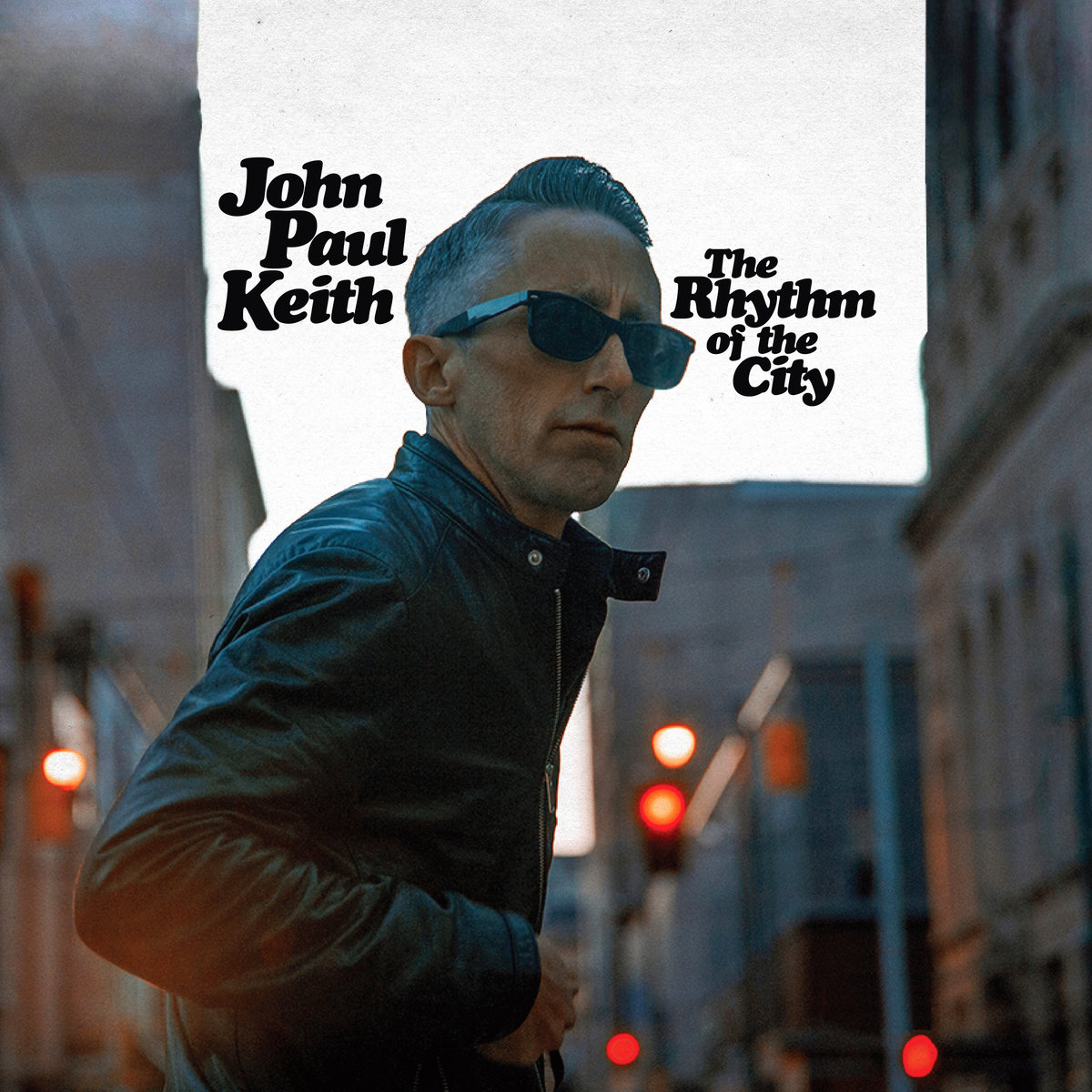
JOHN PAUL KEITH: THE RHYTHM OF THE CITY

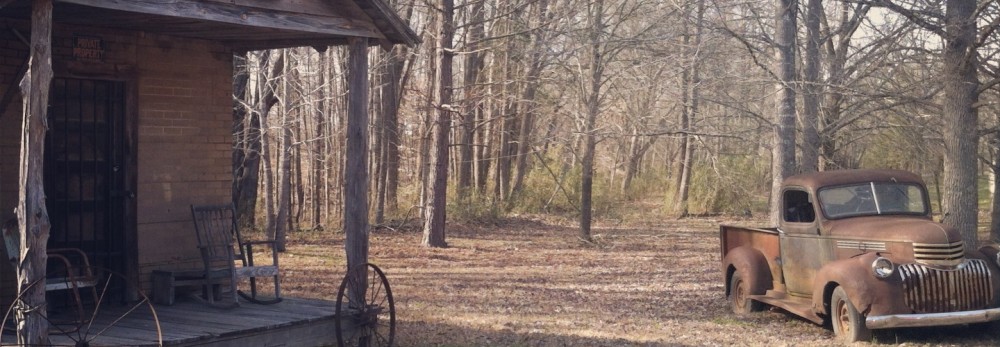

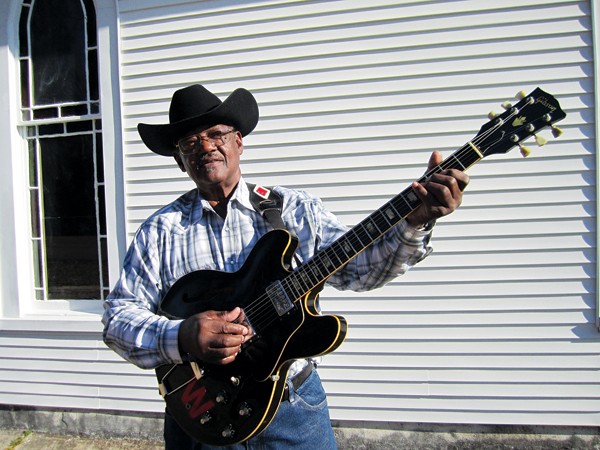
On the morning of October 6, 2020, The Reverend John Wilkins passed
away at the age of 76. A talented guitarist and performer, Wilkins
was enjoying some late in life success thanks to his recently released
albums YOU CAN’T HURRY GOD and TROUBLE. He was a popular performer at
Blues festivals and because of his unique Country/Blues guitar playing
style, many considered Wilkins to be one of the last living links to a
musical period long gone. He is survived by a loving family (some of
whom performed with him at his concerts) and will always be
remembered by members of the church where he was a pastor in Como,
Mississippi.
Born in Memphis in 1943 into a musical family Wilkins began playing
guitar at a young age thanks to his father, pre-war Blues guitarist
Robert Wilkins. Best known for his song “Prodigal Son” (which was
covered by The Rolling Stones in 1968), Robert Wilkins had a career
that started in the late 1920’s but didn’t enjoy mass success until
his “rediscovery” in 1964 as part of the Blues revival. From about
1936 until his rediscovery in ’64 Robert temporarily gave up playing
Blues and began focusing on Gospel music. It was during these years
that young John came into this world and began performing alongside
his father at church. While his father was probably his biggest
influence on his playing directly, John also soaked up the musical
sounds of Memphis during the 50’s and 60’s. He would go on to do
studio sessions and play in various groups around the city before
eventually settling down and becoming a pastor of the Hunter Chapel in
Como, Mississippi in 1985.
Even though Hunter Chapel had its fair share of blues musicians as
part of their congregation over the years once Wilkins took over as
pastor he gave up playing guitar entirely. He finally picked it up
again in 2003 after he attended a funeral for his friend, musician
Otha Turner. Inspired to pick up playing music again he got back into
performing and in 2010 he released his debut album YOU CAN’T HURRY GOD
(Big Legal Mess Records). The record was well received by many and
soon Wilkins found himself bringing the sound of the Mississippi Hill
Country (or as Wilkins called it “Hand-clappin’ foot-stompin” music)
to places like London and Paris. He became a major fixture at Blues
festivals all over the world and in 2019 recorded a follow up album.
All seemed to be going well for Wilkins and his family until April
2019 when he contracted COVID. Like many who have contracted the
disease Wilkins first found himself having trouble breathing and
feeling like he had the flu. He phoned his daughter and was quickly
admitted to a local hospital where he was hooked up on a respirator.
He stayed in the ICU for 5 weeks before his health slowly started to
improve. Then in mid June, Wilkins got the good news he was all clear
and returned home! Not long after his release from the Hospital he
released the album TROUBLE (Goner Records) that he recorded in 2019.
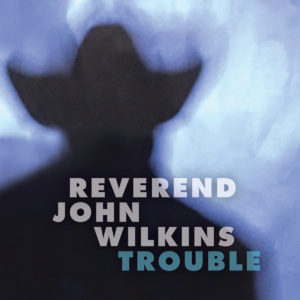
Recorded in Memphis at the legendary Royal Studios, TROUBLE was
finally released September 18th, 2020 and received rave reviews upon
its release . Formally the recording home of Willie Mitchell’s
Hi-Records (Al Green, Syl Johnson, Ann Peebles) Royal Studios has been
one of the prominent spots to record in the south since 1957. The
recording session was sort of a homecoming for Wilkins as he performed
on sessions here in his earlier years. The studio is also known for
taking Soul music to the next level in the 60’s and 70. So, it seems
only fitting that the album Wilkins recorded here would be musically
diverse. Featuring a little something for everyone, TROUBLE is truly a
Memphis record. Here we find Wilkins and his band mixing Country and
Soul along with their normal mix of Blues and Gospel thus giving the
album more of a “Southern Soul” feel then his previous record. It also
must be said that one of highlights on this record is hearing Wilkins’
own daughters perform alongside him.  Tangela Longstreet, Joyce Jones, Tawana Cunningham are all very talented in their own right and give the band sort of a Staple Singers sound on tunes like “Wade In The Water”, “Walk With Me”, and “Darkest Hour”.
If there’s any part of TROUBLE that is a bummer it’s that Wilkins
wasn’t alive long enough to see it enjoyed by his fans. As previously
mentioned he passed away October 6, 2020 from unknown causes. While he
will be missed by many all over the world we are fortunate he left us
two wonderful albums of music along with a lifetime of memories.
Hopefully his music will live on and find new listeners in the years
to come. After all, who doesn’t love some good Hand-clappin, foot-stompin’ music!
REV. JOHN WILKINS albums are currently available for streaming on Spotify and for purchase through most on-line retailers.Â
YOU CAN’T HURRY GOD (Big Legal Mess Records) 2010
TROUBLE (Goner Records) 2020
Born in Arkansas in 1915 Sister Rosetta Tharpe influenced Rock and Popular music more then most people know. A young Little Richard got his start by opening for her before anybody knew who he was. Elvis, Johnny Cash, and Bob Dylan all cite Sister Rosetta as a major influence, and during her heyday she performed for stadium sized crowds all over the world. In short, Sister Rosetta was a rockstar before Rock n’ Roll even existed.
Similar Artists: Junior Kimbrough, R.L. Burnside, Lightnin’ Hopkins
The Beginning: Fat Possum Records and Hill Country Blues
In 1992 a small indie label called Fat Possum Records gave the American Blues scene a much needed kick-in-the-ass when they released the debut album from 62 year-old Bluesman Junior Kimbrough. Entitled ALL NIGHT LONG, the record was met with rave reviews from both critics and Blues fans and gave Kimbrough some well deserved national attention. Shortly after the success of the Kimbrough record Fat Possum also started having success with another one of their artists, R.L. Burnside. Like Junior Kimbrough, R.L. Burnside was in his 60’s a resident of the Mississippi Hill Country and a master of a style of music called “Hill Country Blues”. Different than the well known Delta Blues style, Hill Country Blues focuses more on creating a groove and sometimes features other instruments such as Drums. With both the Kimbrough and Burnside records receiving some good press, Fat Possum began recording other Hill Country Blues musicians. Unfortunately the label quickly ran into the problem that many of the musicians they recorded were usually older and in very poor health. Sadly, many of them died before or shortly after their album got released. Down but not out Fat Possum Records kept plugging along and in 2000 they released a record by a 59 year-old construction worker named Robert Belfour.
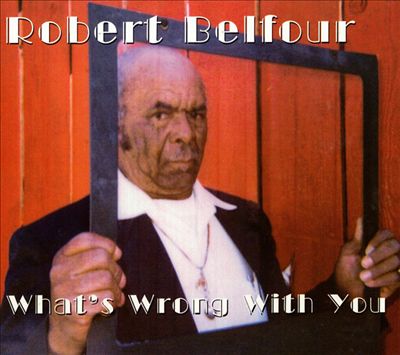 Fat Possum and Mr. Robert Belfour
Fat Possum and Mr. Robert Belfour
Robert Belfour was born in 1940 in Red Banks, Mississippi. Growing up in the Hill Country, he was surrounded by music and learned to play the guitar by watching his father play. As his interest in the guitar grew he began performing for friends and family at picnics. He continued his musical education by watching local legends like Othar Turner and Junior Kimbrough who both lived in the area and regularly performed at parties and in local Juke-Joints. Unfortunately when Robert was just 13 years old his father passed away and he was forced to get a job in order support the family. Then in 1959 Robert got married and moved to Memphis, Tennessee. He worked in construction for the next 35 years and only played music when he had time. In fact, it was until the late 80’s when he really began to take music seriously again. His first real break came in 1994 he was featured on the compilation album THE SPIRIT LIVES ON, DEEP SOUTH COUNTRY BLUES & SPIRITUALS. The recordings he contributed to the record got the attention of Fat Possum Records and in the year 2000 the label issued his debut album WHAT’S WRONG WITH YOU. A dark-acoustic record, WHAT’S WRONG WITH YOU showcased Roberts percussive guitar work and rich deep voice. The album featured a mixture of originals and covers, many of which had been made popular by other Hill Country Blues musicians. The album was a success with many Blues enthusiasts and introduced Robert to an international audience.
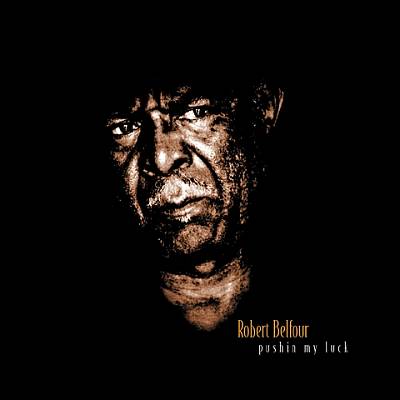 In 2003 Robert released his second album on Fat Possum, the humorously titled, PUSHIN’ MY LUCK. Like it’s predecessor, the album was primarily acoustic and pleased both fans and critics. Internationally, Robert’s popularity grew and he started to play a number of European Blues festivals. Back in the states, Robert kept his home in Memphis and continued to be a regular performer on the Juke-Joint scene in Clarksdale, Mississippi. A dynamic performer into his 70’s, Robert’s shows would usually last late into the the night and sometimes be as long as three hours! Unfortunately, all good things must come to an end. Robert Balfour passed away at his home in Memphis on February 25, 2015. Fortunately for us (and thanks to the good folks at Fat Possum Records) his recordings are still readily available and can be found on iMusic, Spotify, Amazon, and at your local record store.
In 2003 Robert released his second album on Fat Possum, the humorously titled, PUSHIN’ MY LUCK. Like it’s predecessor, the album was primarily acoustic and pleased both fans and critics. Internationally, Robert’s popularity grew and he started to play a number of European Blues festivals. Back in the states, Robert kept his home in Memphis and continued to be a regular performer on the Juke-Joint scene in Clarksdale, Mississippi. A dynamic performer into his 70’s, Robert’s shows would usually last late into the the night and sometimes be as long as three hours! Unfortunately, all good things must come to an end. Robert Balfour passed away at his home in Memphis on February 25, 2015. Fortunately for us (and thanks to the good folks at Fat Possum Records) his recordings are still readily available and can be found on iMusic, Spotify, Amazon, and at your local record store.
Few people were better at discovering musical talent in Louisiana during the 1950’s and 60’s then J.D. Miller and Eddie Shuler. Instrumental in bringing styles such as Zydeco, Cajun, and Swamp Pop to the ears of the world, they each made their mark by recording and producing local unknown talent. Miller recorded the artists he discovered then usually sold the tapes to other record labels while Shuler recorded and released music on his own Goldband label. Now, thanks to the fine people at ACE Records, there are TWO new excellent compilations that focus on the Blues recordings produced by Miller and Shuler.
Part of ACE’s “By The Bayou” series, these discs, entitled Bluesin’ By The Bayou and Bluesin’ By The Bayou: Rough & Tough, are both supreme examples of the Louisiana Blues scene during the 50’s and 60’s. Sometimes known as “Swamp Blues” the music on these recordings is a mix of down-home Country Blues with a few touches of R&B, Zydeco, and Cajun Music thrown in for good measure. These recordings are essential for any Blues or Roots Music fan’s record collection. This is as greasy as it gets!
Some of the artists featured on Bluesin’ On The Bayou
SLIM HARPO
Born in Baton Rouge, Louisiana, Slim Harpo was one of the most successful and best known of all Swamp Blues artists. His songs “I’m A King Bee” (1957) and “Shake Your Hips” (1961) were both covered by The Rolling Stones and he had a number one hit in 1966 with “Baby Scratch My Back”. Included on Bluesin’ By The Bayou: Rough and Tough are his single “My Little Queen Bee”, an answer to his first hit “King Bee”, and a cover of Lonesome Sundown’s “Bought Me A Ticket”
LONESOME SUNDOWN
Lonesome Sundown was born Cornelius Green in 1931 on a plantation in Donaldsville, Louisiana. Well versed in a variety of musical styles, Lonesome Sundown’s music ranged from down-home Blues to Country to Roll-licking R&B. He was never a household name but nevertheless was responsible for some of the most exciting music to come out of Louisiana in the 50’s and 60’s. Included on Bluesin’ By The Bayou: Rough and Tough are romping versions of his songs “I’m Gonna Stick To You Baby” and “If Anybody Asks You”. Both songs are essential listening for any Blues fan.
LIGHTNIN’ SLIM
One of the most important and influential bluesmen to ever come out of Louisiana, Lightnin’ Slim was actually born in St. Louis, Missouri. He moved to Louisiana when he was a teenager and soon picked up the guitar and began playing in clubs. In 1954 he recorded “Bad Luck Blues” with J.D. Miller and regularly performed with fellow Louisiana bluesmen Lonesome Sundown, Lazy Lester, and Slim Harpo. Included here in this collection is his song “Trip To Chicago” which talks about the groups “adventure” to play a gig in the Windy City! Fellow Louisiana bluesman Buddy Guy credits Lightnin’ Slim as one of his biggest influences.
LAZY LESTER
A talented multi-instrumentalist, Lazy Lester performed on many recordings produced by J.D. Miller as both a front-man and backup musician. His first major his was the his 1958 release “I’m A Lover Not A Fighter”. Originally written by J.D. Miller, this song put Lester on the map and was coupled with the b-side “Sugar Coated Love”. Still an excellent performer to this day, he still tours nationally and is a favorite at Blues festivals. He was inducted into the Blues Hall Of Fame in 2012. UPDATE 2018: Sadly Lester passed away on August 28, 2018. He was 85
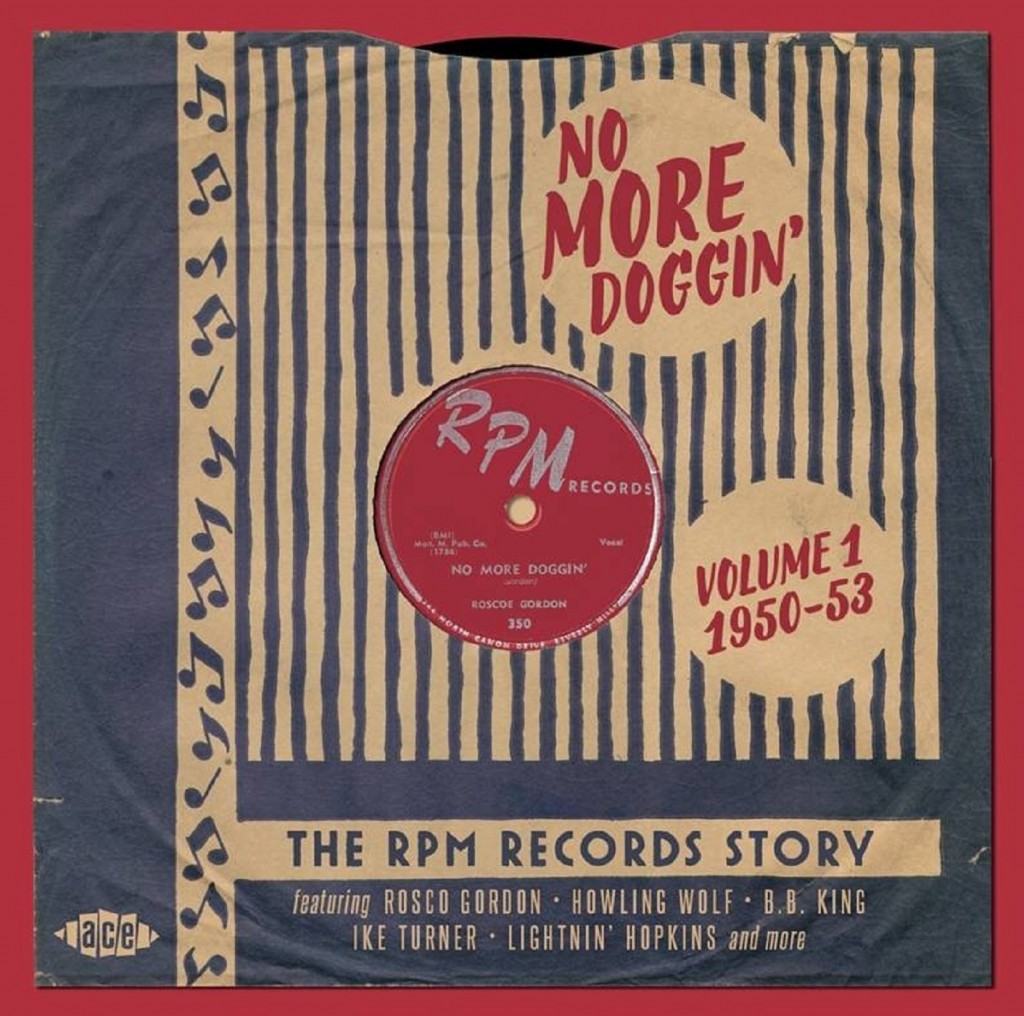 Full of Jump Blues, early R&B, and down-home Country Blues, the double-disc collection No More Doggin’ The RPM Records Story Vol. 1 might be one of the best introductions to early 50’s blues ever. Compiled by the good folks at ACE Records, this collection covers the early years of RPM Records and features well know artists like B.B. King, Howlin’ Wolf, and Lightnin’ Hopkins.
Full of Jump Blues, early R&B, and down-home Country Blues, the double-disc collection No More Doggin’ The RPM Records Story Vol. 1 might be one of the best introductions to early 50’s blues ever. Compiled by the good folks at ACE Records, this collection covers the early years of RPM Records and features well know artists like B.B. King, Howlin’ Wolf, and Lightnin’ Hopkins.
Started in 1950 by the Bihari Brothers, RPM was meant to be a subsidiary of the Bihari’s very popular label Modern Records. After initially having lots of success with Modern, the Bihari’s began having trouble getting their records played on the radio due to stations not wanting to play too many sides from any one label. So in order to get their product on the airwaves the Bihari’s started a number of subsidiary labels. Probably the most popular of Modern’s subsidiary labels, RPM introduced the world to a Memphis radio DJ by the name of Riley B. King. Eventually known as “B.B. King”, Riley came to the attention of the Bihari Brothers thanks to their working relationship with Memphis talent scout/producer Sam Phillips. Phillips at the time was recording local artists with his Memphis Recording Service then sending the masters to labels like Modern and Chess. Trough their relationship with Phillips, the Bihari’s got hooked up with some of the best talent in Memphis. Unfortunately their relationship ended when Phillips and the Bihari’s had a disagreement over a B.B. King session and went their separate ways. Fed up with feeding product he recorded to other labels, Phillips then decided to start his own label, Sun Records. As for Modern/RPM, even without the help of Phillips the label still went on to produce many more hits, including B.B. King’s breakthrough hit record Three O’Clock Blues.
No More Doggin’ The RPM Records Story Vol. 1 starts off with the Dixieland-style track “Alabama Bound”. Sung by Adele Francis, this tune was RPM’s first release in 1950. Other stand out tracks are Sonny Blair’s down-and-out blues ballad “Glad To Be Back Home”, B.B. King’s “Other Night Blues, and Howlin’ Wolf’s “Riding In The Moonlight”. My personal favorite recordings on this collection are the Lightnin’ Hopkins tracks. Excellent versions of “Bad Luck and Trouble” and “Another Fool In Town” showcase Hopkins at his bluesy best, while “Jake Head Boogie” shows that he also could ROCK when he wanted to. Another nice surprise on this collection is the tune “It’s Time For Lovin’ To Be Done”. Performed by Detroit Bluesman Little Eddie Kirkland, the song features uncredited backing vocals by the great John Lee Hooker!
As usual the folks at ACE left no stone unturned when putting this collection together. Included in this collection is a nice history of RMP records as well as a few words on all the performers. All of the albums 52 tracks sound crisp and clear thanks to the extra care shown by the folks who did the remastering. If you want to hear where Rock N’ Roll really began this collection is for you.
Leo “Bud” Welch: SABOUGLA VOICE Big Legal Mess/Fat Possum
For Fans of: Junior Kimbrough, R.L. Burnside, The White Stripes, Rev Louis Overstreet
Guitarist Leo “Bud” Welch was born in Sabougla, Mississippi in 1932. A natural musician, Leo taught himself to play the guitar by learning songs off the radio. As soon as he built up a small repertoire he began performing at parties and local juke-joints. Unfortunately work as a musician was inconsistent and even though he was incredibility talented he was unable to make a living playing music. In order to make ends-meet Leo ended up taking a job as a logger and had to resort to playing music only when he had free time. Then in 1975 Leo switched from playing Blues to playing Gospel. He started performing in churches all over Mississippi and even began hosting a local Gospel Television show. Even though he now considered himself a Gospel musician he still kept in touch with the local Blues scene. As time went on he heard that Blues musicians like Junior Kimbrough were having late-in-life success working with Fat Possum Records. Inspired by this he called up the label and requested an audition. Label owner Bruce Watson agreed to hear Leo play and ended up signing him on the spot. Now thanks to the good people at Fat Possum and Big Legal Mess Records the world finally gets to hear one of the treasures of Mississippi, guitarist Leo Welch.
The album is called Sabougla Voices and the music on it is honest no-frills Mississippi Gospel. Throughout the albums ten tracks Leo’s plays the guitar with the energy of someone half his age. Songs like “Praise His Name” and “You Can’t Hurry God” are upbeat and show us the lines between Blues and Gospel are blurry at best. In fact, if you were to change a few lyrics, these songs could easily be for Saturday night instead of Sunday morning. Another standout track on the record is the acoustic “Me and My Lord”. Sounding a little like Pops Staples, Leo does call and response with his backup singers while playing acoustic guitar. This song is given an extra push by Leo’s backing band which shows it’s professionalism by settling into a nice groove and not over playing.
Even though all of the music on Sabougla Voices is solid, the album’s strongest track is easily the slow and eerie blues tune “A Long Journey”. Beautifully recorded, this song is about accepting the fact that death is part of life. That being said, hopefully Leo will be still be around for a long time as he deserves to enjoy every minute of his new found success! He’s got gigs booked across the U.S. this summer and is even scheduled to perform in Europe! Not bad for someone that at one point had to turn down an audition with B.B. King because he couldn’t afford to travel to Memphis. This album is excellent and belongs in your collection.
FEVER: Little Willie John’s Fast Life, Mysterious Death, and the Birth of SoulÂ
Author: Susan Whitall Publisher: Titan Books
Armed with a lion-like voice and sparkling personality Little Willie John was one of the most popular entertainers during the 1950’s and 60’s. Songs like “All Around The World”, “Fever”, and “Talk To Me” all made it to the top of the R&B charts and became the blueprint for what would later be called “Soul Music”. He consistently filled concert halls throughout his career always delivering an electric stage show that left audiences wanting more. On the road more often then not Willie lived his life fast and hard. He regularly stayed out until the wee-hours of the morning drinking and socializing. One night after a show in Seattle, Washington while he was drinking at an after-hours club Willie was involved in an altercation that ended with him stabbing a man. Willie ended up being charged with manslaughter and was sent away to the Washington State Penitentiary where he died on May 26 1968 at the age of 30. Although the cause of his death is listed as “Heart Attack”, there are questions about the care he was given while incarcerated. However it happened, it’s a sad but true fact that Little Willie John left this world too soon.
In her book FEVER: Little Willie John, A Fast Life, Mysterious Death, and the Birth of Soul, author Susan Whitall gives us a detailed and in-dept look at the life of one of music’s greatest voices. Written with the help of Willie John’s son Kevin and filled with interviews from those who knew Willie John this book is essential for anyone interested in the history of Soul music.
Essential listening Little Willie John: Complete Hit Single’s A’s & B’s
RESPECT YOURSELF: THE STORY OF STAX RECORDS Bloomsbury USA
Author Robert Gordon has been writing about the music of Memphis for almost 30 years. In Respect Yourself: The Story of STAX Records Mr. Gordon not only tells the story of STAX but also the story of the Civil Rights movement in Memphis.  Passionately written and meticulously researched this book takes you from the label’s meager beginnings in a garage outside Memphis to it’s bankruptcy in 1975.  Along with Mr. Gordon’s narration you hear from the people that made STAX happen, making this book one of a kind.
A LITTLE STAX HISTORY…
Started by Jim Stewart and his sister Estelle Axton in 1957, STAX Records was more then just a record label. It was a voice in the community. The label’s open door policy made it possible for anyone to come in off the street and set up an audition. It didn’t matter where you were from or what the color of your skin was, you were welcomed at STAX as long as you had a passion for music.
Right from the beginning STAX did things it’s own way. Segregation may have been alive and well in Memphis during the 1960’s, but that didn’t stop STAX founder Jim Stewart from hiring an African American DJ named Al Bell to be his lead promotions man. Â Working together side by side Jim, Estelle, and Al turned STAX records from a little indie label into a household name! Â STAX artists like Otis Redding, Booker T. & The MG’s, Carla Thomas, and William Bell put the label on the map with singles that started appearing on the R&B and Pop charts. Â Money was coming in and things were really rolling, until one very dark December day in 1967…
Today many people can remember exactly where they were when they learned that the plane carrying Otis Redding and The Bar-Keys went down. Otis was the soul of STAX and the voice of soul music. Â A few months later while the people of STAX were still grieving over the loss of Otis and the Bar Keys their world was rocked again. Â On the evening of April 4, 1968 Â Dr. Martin Luther King was assassinated at the Lorraine Motel in Memphis. Â Needless to say, after the assassination of Dr. King everything was different, especially in Memphis. Â If all this wasn’t enough, Â the label’s distributor Atlantic Records ended it’s relationship with STAX. Â With it’s biggest star gone and no way to get music to the stores most label’s would have called it a day, but most labels didn’t have Al Bell. Â It was then that Al and the folks at STAX hunkered down and staged one of the biggest comebacks in music history.
The early 70’s found STAX again at the top of the Soul music world. This time around STAX would reach heights that were even greater then it did in the 1960’s. Al Bell gained full control of the label and STAX rode the success of artists like Isaac Hayes, The Emotions, Johnnie Taylor, and The Staple Singers all the way to the top of the charts. Sadly this rebirth would be short lived as some questionable business decisions and over expatiation lead to STAX eventually having to declaring bankruptcy in 1975.
All that said, STAX has lived on in many different ways. Many of their artists are still celebrated today and have found new audiences. Artists such as William Bell, Mavis Staples, and Eddie Floyd still perform and continue to release new music while others like Sam Moore are mostly retired but still appear at the occasional music festival. The studio was rebuilt and is now a museum (possibly the best museum in Memphis not named The National Civil Rights museum). There is also the Stax Music Academy, a music school that is focused on providing music education to local youth. So while the days of Otis roaming the halls and Al Bell running the office might be gone all is not lost. The future of Stax is very bright.
On Sunday June 23, 2013 the Blues world lost one of its most soulful voices, Bobby “Blue” Bland. Unlike many of his contemporaries Bland lived to the golden age of 83, thus making him one of the last living connections to the Memphis Blues scene of the 1950’s. In his early days Bland performed on Beale street along with artists like Johnny Ace, Little Junior Parker, Ike Turner, Howlin’ Wolf and B.B. King. Although he spent his early years performing just up the street from the Mississippi Delta in Memphis, Bland’s smooth vocal style was closer to the big city Rhythm & Blues sound of artists like Louis Jordan and T-Bone Walker (he eventually earned the nickname “The Black Sinatra”).
During the 1950’s the Memphis music scene was one the biggest and most competitive in the South. Musicians from all over flocked to the area to showcase their talent at the clubs on Beale Street and across the river in West Memphis. In these clubs you had to be not only on top of your game musically but you had to be able to put on a show!  The pool of talent was so impressive that it wasn’t long before record labels like Chess, Modern, and Duke got wind of what was going on and started signing artists to their rosters.  Bobby “Blue” Bland first recordings were for the the Modern and Chess labels. Although they were very good they failed to draw national attention. It wasn’t until he started recording for Duke Records in 1954 that he found success as a recording artist. His first big single was “Farther On Up The Road” which reached number 1 on the R&B charts. In 1961 Bland and Duke released the album Two Steps from the Blues which was combined some newly recorded “Big Band” style tracks along with some of his previously released late fifties sides. The album was an instant success and took Bland’s career to the next level.
In the years following Two Steps From The Blues Bland released albums and kept a busy touring schedule. Duke released like Here’s The Man, The Soul Of The Man but in 1968 due to a number of personal problems Bland disbanded his touring band and cut his live schedule way back. He enjoyed some success with the single “This Time I’m Gone For Good” from His California Album which broke into the top 50 on the Pop Charts. In 1974 Bland teamed up with B.B. King and released the first of two live albums with B.B. King.  Together for the First Time…Live was a commercial success and helped Bland and King stay in the spotlight through the 70’s. The pair toured on and off together for the next 35 years.
Although he may not have had the commercial success of B.B. King or Muddy Waters, Bobby “Blue” Bland was a force to be reckoned with in the would of Blues and R&B. He’s inspired everyone from the Heavy Metal band Whitesnake to the legendary rapper Jay-Z.  He’s a member of both the Rock N’ Roll Hall of Fame and The Blues Foundation Hall Of Fame and has performed sold out concerts all over the world. B.B. King credits him as being one of the best singers he’s ever heard. Personally, I agree with Mr. King. Thank you Bobby for sharing your music and talent with us.